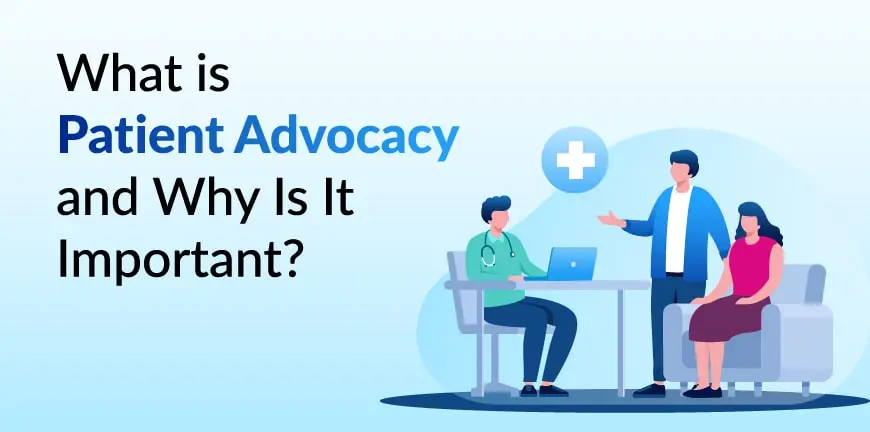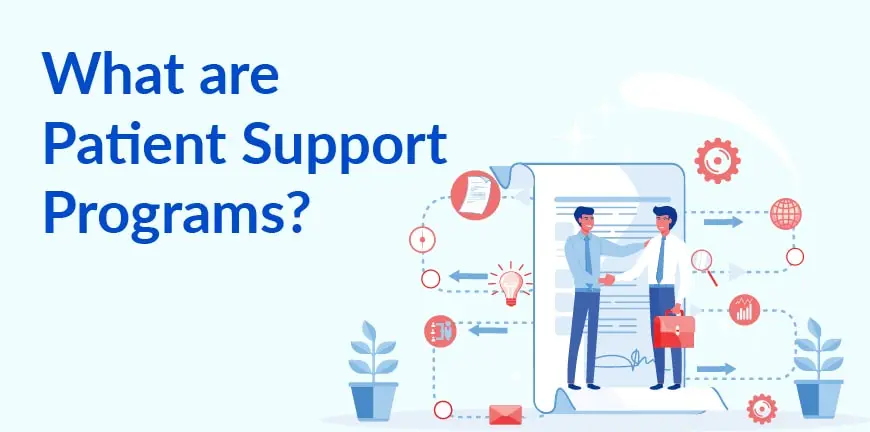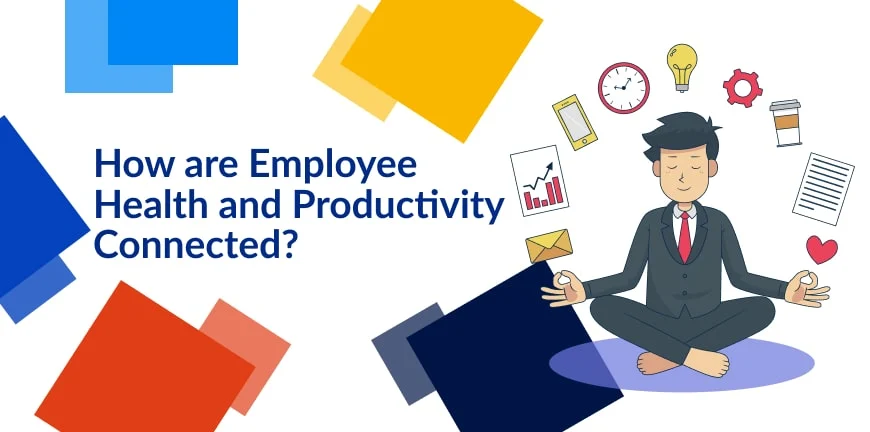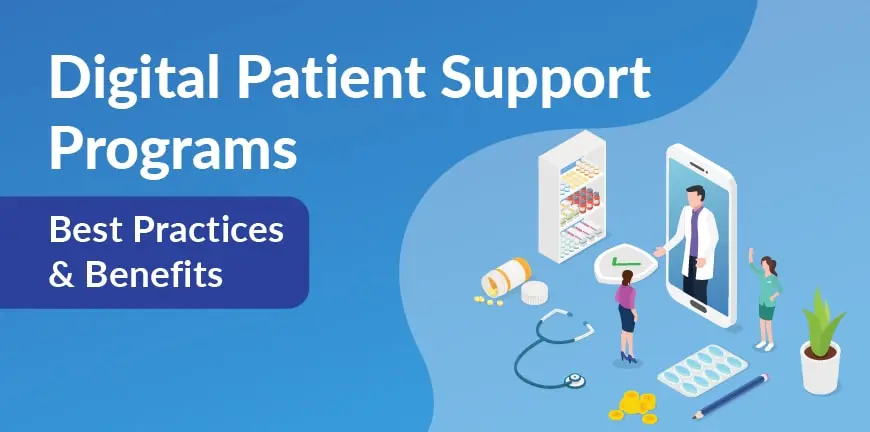
How to Safeguard Rights of Apprentices?
28/06/2024
8 Benefits of Hiring Bilingual Employees
04/07/2024Patient support programs (PSPs) are initiatives designed to assist the patient and help them navigate the healthcare system effectively, so that they get the care they deserve. Patients not only need care and empathy, but also want prompt action to help them when they most need it. Speaking and acting on behalf of the patient are two very important things that people involved in a patient support program can do as patient advocates.
This is because healthcare providers do not always discuss all the treatment options that may be available with the patient or may not even be confident, they have advised the patient on his/her rights. This is where patient advocacy groups bring in a much-needed change and help defend the rights of the patient and advise them about possible treatment options and what outcomes to expect. Patient advocacy groups even educate them why following the healthcare provider’s advice and the treatment method recommended by the pharma company will be a lifesaver for them.
What is Patient Advocacy?
Patient advocacy is the process of becoming an advocate for the patient, deciding on his/her behalf, suggesting corrective actions, be it with regards to medical treatment or the payment for the treatment itself or applying for insurance from a third party. Patient advocates and patient advocacy groups will help the patient understand his/her medical conditions in a better way, advising them on what to do and how to take a more active role in the management of their medical condition.
Why Is Patient Advocacy Important?
Patient advocacy is important in a patient support program because it enables:
1. Better patient education
It involves influencing patient behavior and producing the changes in knowledge and attitude, perhaps even skills, necessary to maintain or improve their health. This happens through the process of continuous training during medication or therapy and includes talking about the disease, the medicines provided and the therapy to be followed.
2. Better medication adherence
The increase in the adherence to medicine can be facilitated by better patient education and the provision of remote assistance or even transportation to nearby medical facilities. This is another reason why patient advocacy is important. Talking and acting on behalf of the patient benefits both the patient and the healthcare provider, bringing the treatment to conclusion a lot earlier.
3. Faster claims processing
The insurance claims that the patient has will be processed a lot faster if the patient is aware of the terms and conditions in the insurance policy. Sometimes treatments are delayed or the benefits that are due to them are missed, and they end up paying a lot more than required for the same treatment too. These are some of the difficulties that can be gotten rid of in claims processing with better patient advocacy.
4. Higher patient satisfaction scores
The patients are also more satisfied with the treatment they are getting. The patient satisfaction scores go up significantly. Both healthcare providers and pharma company get a reputation boost. This happens by word of mouth or by reviews posted online, which garner the attention of others looking for treatment with the healthcare provider. The pharma company then becomes a more trustworthy source of medicines too.
5. Lesser risk of litigation
The patients are more satisfied with the treatment and benefits they are getting because of your active patient advocacy. This means that they are less likely to be infuriated if things take a bad turn. You can still reason with them, and the likelihood of litigation is much lower. You need not pay heavy legal fees that you may have to otherwise pay, all because you responded to patients in time and offered them the care that they deserve.
What Are the Types of Patient Advocacy in A PSP?
1. Medical/Navigational Advocacy
They help patients understand the disease conditions better, understand the course of treatment better, interact with healthcare professionals and also translate the medical lingo in a way that both the patient and the relatives of the patient can understand better. They also help establish contact with several social service programs too.
2. Medical Facility Advocacy
They act as representatives of the patient when communicating with the physicians. They ensure that the patient gets an accurate diagnosis, the right medicines for the treatment, and ensure that the patient is being cared for in the right manner by the nurses and other staff. In short, they attend to the patient’s needs that are related to the medical facility they are treated in.
3. Billing and Health Insurance Advocacy
They help ensure that duplicate or erroneous bills are not generated for the patient and that the claims they file for are quickly cleared and sorted in the best way possible. If there are any billing issues, then they speak on behalf of the patient with the healthcare provider, the pharma company, or with the insurance partner.
4. Legal Advocacy
Legal advocates assist with any legal issues that the patient may be facing, including incorrect billing, disability claims, incorrect medical treatment, or issues with medical insurance. These legal advocates are familiar with laws that safeguard the patient’s rights and will fight on behalf of the patient if required.
5. Mental and Behavior Health Advocacy
Wee patient must be in good mental health throughout the course of treatment, and to ensure this, we have the last category of patient advocates. They analyze the health conditions of the patient, eliminate stress, especially if the patient is receiving palliative care or has undergone some trauma, and eliminate any communication issues that may arise due to mental challenges.
How Patient Advocacy Supports Patients in a PSP?
Patient advocates help patients lead better lives in a PSP. The reasons have already been discussed earlier and are ample proof of the fact that patient advocacy can be a great support for patients in a patient support program. These advantages in turn help ensure that both pharma companies and healthcare provider can secure a good reputation and a better outcome in their treatments.
How to Pick a Good Patient Support Program Partner?
When picking a good PSP partner, one must look for affordability, maintenance of ethical standards, and availability of quality care for the patients who are part of the PSP. To ensure that the patients receive the attention they deserve, try to find a PSP partner with these characteristics.
Alp Consulting has been managing patient support programs since a long time, and we can help manage yours too, for better results. Talk to us, and we will help you.
Contact Us For Business Enquiry

Dr. Neha Joshi
Dr. Neha Joshi is the Business Head at Alp Consulting Ltd., bringing over 15 years of diversified experience in operations management, business strategy, and client excellence across healthcare and consulting sectors. Her expertise lies in driving operational transformation, enhancing customer experience, and building scalable business processes. Having held key leadership roles at Rivaara Labs, Suburban Diagnostics, and Portea, Neha combines strategic insight with execution excellence to deliver impactful, sustainable growth.




